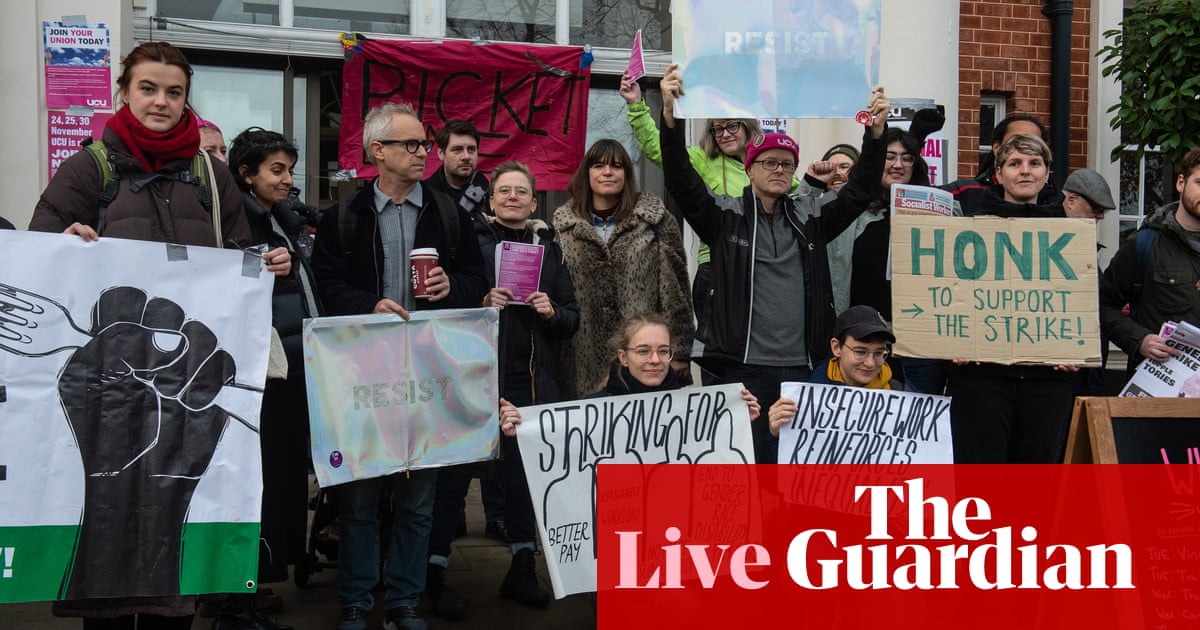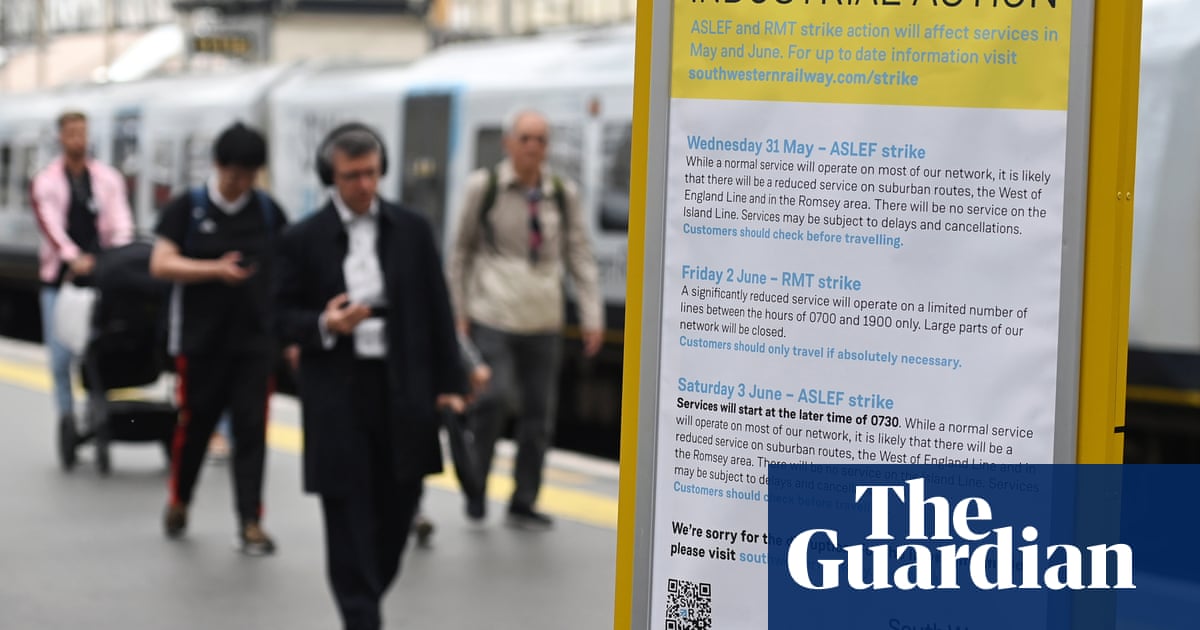
The NHS is facing months of disruption early next year as health unions ramp up their campaign of strikes in protest against the government’s “pitiful” pay award and refusal to countenance improving it.
Ambulance services in England will be hit by two days of strikes on 11 and 23 January by members of Unison, and the union has decided that these stoppages will last for longer and involve more staff than this week’s strike, as part of a deliberate escalation of its industrial action.
The cranking up of its campaign “is a direct result of the government’s repeated refusal to negotiate improvements to NHS pay this year”, the union said.
On Friday morning, the Royal College of Nursing (RCN) will announce details of the expansion it has threatened to undertake of its campaign to force ministers to improve on the £1,400 pay offer for 2022-23 that they have made to NHS staff except for doctors and dentists.
The RCN is widely expected to announce two more days of strikes to follow the ones it held on 15 and 20 December, and that the strikes will affect more hospitals.
Health union officials privately say they are resigned to their dispute with the government lasting for months, given the hardening of Rishi Sunak and Steve Barclay’s positions this week. The prime minister said it was too late in the financial year to revisit the £1,400 award that has provoked such anger, while Barclay, the health secretary – who has refused to negotiate over pay – infuriated ambulance workers by claiming their stoppage this week could cost lives.
Responding on Thursday evening to news of further industrial action Barclay said: “We are disappointed that some union members have chosen to take further strike action. The additional pay demands of unions would mean taking money away from frontline services and cause further delays to treatment.
“Strikes are in no one’s best interest, least of all patients, and I urge unions to reconsider further strike action before walkouts cause deeper impact to patients.”
One union official said that, faced with a “stalemate” between staff representatives and ministers, “we are escalating the action. The government seem prepared to tough it out and not offer any improvement on the £1,400. It looks like that will mean that health unions will have to take more and more strikes. That will start in January. It might drag on for a while.
“Next time, it will be harder for the NHS [to operate on strike days]. We have to make it more difficult because if we don’t cause difficulty, what’s the point?”
Strikes in the new year are likely to involve even more groups of staff than those who have already taken part in the three days of action so far involving nurses and ambulance workers. Physiotherapists in England and Wales and midwives in Wales are due to announce the dates on which they will be staging action.
In addition, the British Medical Association is due to start balloting 45,000 junior doctors in England on 9 January, which is widely expected to yield a resounding vote in favour of action.
Hospital bosses fear that an escalating series of strikes in the ambulance service in January could be “paralysing”, given the intense pressure on services at that time from winter ailments, the Health Service Journal reported.
They were pleased that Wednesday’s first strike by Unison, Unite and GMB members in ambulance services in England and Wales passed without major problems. Pleas by ministers and NHS bosses to the public to avoid risky activities and only dial 999 for life-threatening emergencies helped ensure the ambulance service received up to 30% fewer calls than usual in some places.
But one NHS trust chief executive told the HSJ that the fact the strike had not caused chaos in the health service meant that “some union activists believe the government thinks it has got away with it and push them towards more radical action”.
The HSJ added: “What managers really fear is a succession of strikes during the period of high demand in January, which may be peak flu season as well, or the extension of action to a greater proportion of staff. Losing more 999 and 111 call handlers could be paralysing.”
Ministers hope industrial action will not become a regular occurrence but do not plan to give any ground to union demands to up their £1,400 offer, which equates to about a 4% rise.
One government official said: “We very much hope this won’t go on for months, that would be bad for patient safety. Unions should come back and enter talks focused on what we can do to improve worker safety.”
Whitehall sources say they are braced for disruption to NHS care across the Christmas period as a result of this week’s two stoppages. The knock-on effects from Wednesday’s ambulance strikes could make for a “very worrying few days” for the NHS, one said.
Ministers insist they will not budge in their refusal to grant NHS staff a bigger pay rise for this year, even in the form of a one-off hardship payment.
One concession that could be made is for the government to speed up the implementation of the salary uplift for 2023-24, so that staff get it in their pay packets sooner.
The health service pay review body is due to make its recommendations in April for what should happen to workers’ salaries for next year. Normally the government would make a formal decision on those recommendations by June or July, with the increase reaching staff in the August salary round.
Next year, however, the decision could be made much more quickly after April, advisers say. “There is a process under way and Steve [Barclay] does not want that to be dragged out,” said one.












